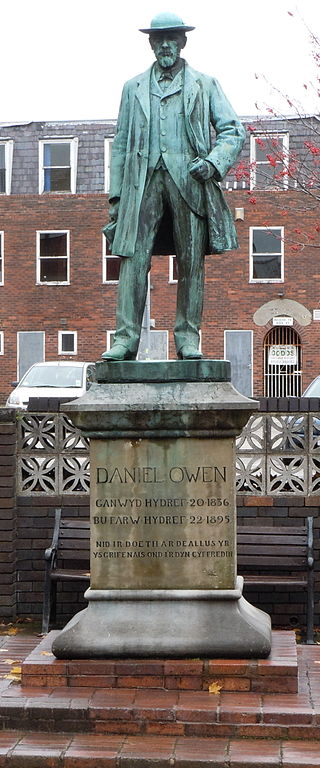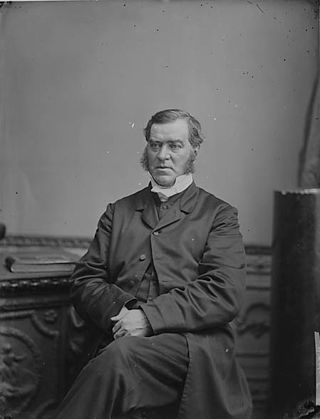
Daniel Owen was a Welsh novelist. He is generally regarded as the foremost Welsh-language novelist of the 19th century and the first significant novelist to write in Welsh.
This article is about the particular significance of the year 1970 to Wales and its people.
This article is about the particular significance of the year 1959 to Wales and its people.

William Ambrose, whose bardic name was Emrys, was a 19th-century Welsh-language poet and preacher. Many sermons of his were published and some of his poems used as hymns.
This article is about the particular significance of the year 1929 to Wales and its people.
This article is about the particular significance of the year 1892 to Wales and its people.
This article is about the particular significance of the year 1891 to Wales and its people.
This article is about the particular significance of the year 1886 to Wales and its people.
This article is about the particular significance of the year 1873 to Wales and its people.
This article is about the particular significance of the year 1862 to Wales and its people.
This article is about the particular significance of the year 1811 to Wales and its people.
This article is about the particular significance of the year 1802 to Wales and its people.
This article is about the particular significance of the year 1780 to Wales and its people.
The Dictionary of Welsh Biography (DWB) is a biographical dictionary of Welsh people who have made a significant contribution to Welsh life over seventeen centuries. It was first published in 1959, and is now maintained as a free online resource.
This article is about the particular significance of the year 1738 to Wales and its people.
This article is about the particular significance of the year 1714 to Wales and its people.
This article is about the particular significance of the year 1709 to Wales and its people.

"To the Yew Tree Above Dafydd ap Gwilym's Grave" is a 14th-century Welsh-language poem in the form of a cywydd, and is usually seen as either an elegy written after the death of Dafydd ap Gwilym or a mock-elegy addressed to him during his lifetime. Its author, Gruffudd Gryg, also wrote another elegy or mock-elegy on his friend Dafydd, and conducted a controversy in verse with him in which Dafydd's poems were criticised and defended. The cywydd on the yew tree constitutes the main evidence for the widespread belief that Dafydd is buried at Strata Florida Abbey in Ceredigion. It has been called "a superb poem, perhaps Gruffudd Gryg's best...a remarkably sensitive and perceptive act of poetic homage that acknowledges, far more than any more direct statement ever could, Dafydd's status as a true athro for his generation". It was included in both The Oxford Book of Welsh Verse and The Penguin Book of Welsh Verse.
Wiliam Llŷn was a Welsh-language poet whose work largely consists of elegies and praise-poems. He is considered the last major Welsh poet of the bardic tradition, comparable to the greatest late-medieval Welsh poets, and has been called Wales's supreme elegist. Two of his poems are included in The Oxford Book of Welsh Verse.


